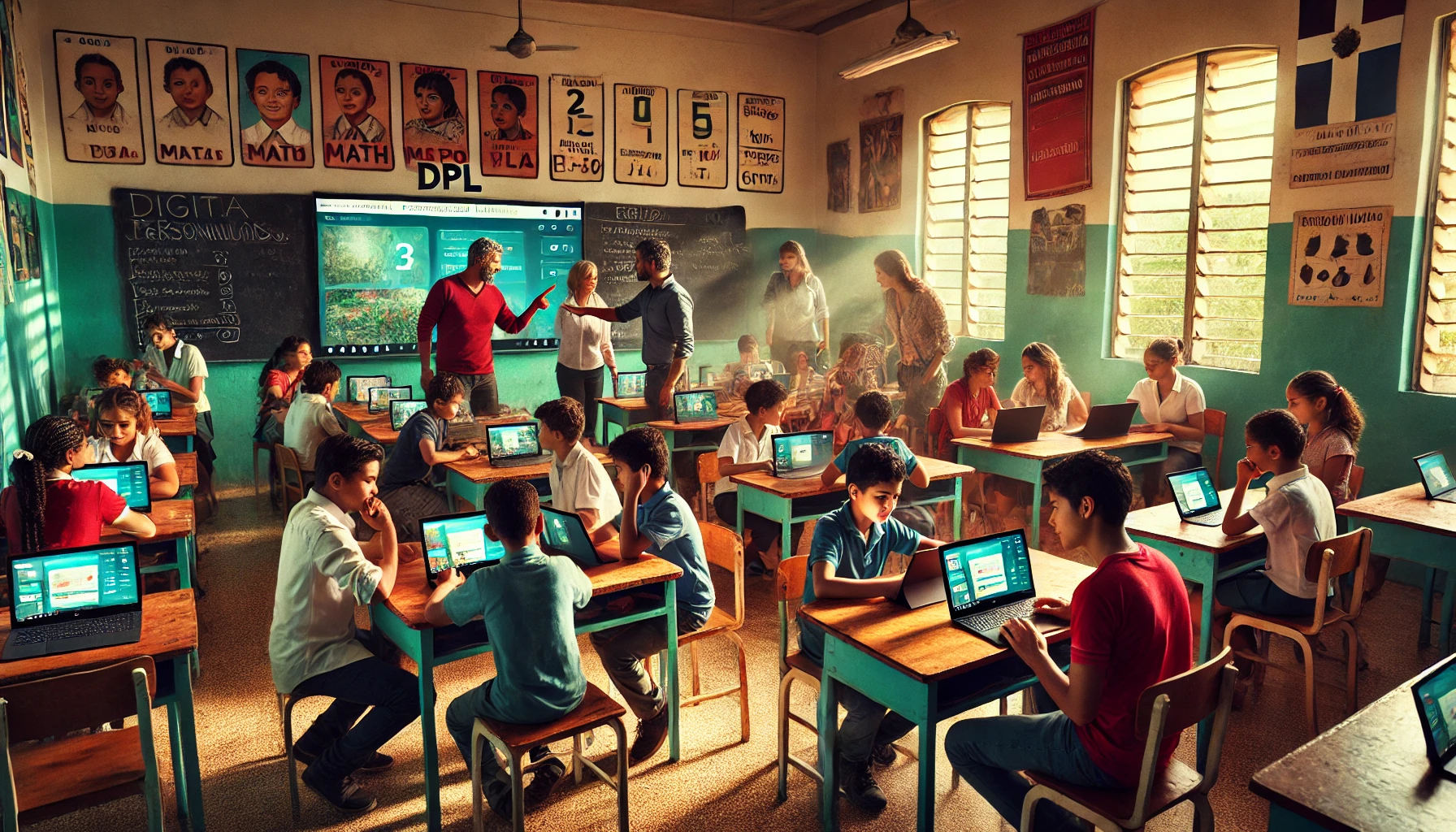Dominican Republic Embraces AI: 7 in 10 Citizens Use Artificial Intelligence Weekly
The findings, released as part of UNDP’s broader analysis on AI and Human Development, paint a picture of a nation that sees AI not as a threat, but as a powerful tool for opportunity, education, and social progress.

- Country:
- Dominica
A new study by the United Nations Development Programme (UNDP) and its Human Development Report Office (HDRO) reveals that the Dominican Republic is rapidly emerging as one of the most AI-engaged societies in Latin America. Nearly seven out of ten Dominicans (68.9%) now report using artificial intelligence more than once a week — a figure that underscores both the country’s growing digital transformation and the population’s readiness to embrace new technologies.
The findings, released as part of UNDP’s broader analysis on AI and Human Development, paint a picture of a nation that sees AI not as a threat, but as a powerful tool for opportunity, education, and social progress.
AI as a Driver of Progress and Opportunity
According to the survey, 66% of respondents believe that AI has already helped them solve problems in their studies or boost their productivity at work. Despite recognizing that automation may disrupt traditional employment — with 67.4% acknowledging that AI could replace some jobs — an even greater proportion (73.3%) remain optimistic that learning about AI will open new employment opportunities.
This optimism grows with higher education levels. Among university-educated respondents, 82% said they view AI as a pathway to better jobs — a sign that awareness and education can positively shape perceptions of technological change.
“The Dominican Republic’s findings showcase a population that is actively engaging with AI and sees it as a pathway to opportunity rather than a threat,” said Ana Maria Díaz, UNDP Resident Representative in the Dominican Republic. “When we spoke with students about their career goals, we found that 42.9% were inclined to pursue STEM fields. This indicates a promising shift toward building national capacities for innovation and preparing for global digital transformation.”
Practical Applications Take the Lead
AI in the Dominican Republic is not confined to experimentation — it’s being used to solve real-world problems. The study found that 47.4% of respondents use AI to support their studies, 37.3% use it at work, 33.6% rely on AI tools for accessing public services in education and health, and 31.3% apply it in financial services such as banking and investment.
Interestingly, AI usage among public servants is especially high, with 67.1% reporting that they use AI tools more than once a week. This suggests that AI is beginning to penetrate public administration, potentially improving the efficiency and responsiveness of government services.
Gender Gaps Persist — But So Does Women’s Engagement
While both men and women are embracing AI, the report highlights persistent gender disparities that merit policy attention. 38.6% of men and 35.7% of women use AI for work-related purposes, but women are more likely to use AI for learning and skill development (50.6% vs 42.3%).
However, a sharper divide appears in future career aspirations. 52.7% of male respondents said they are interested in pursuing STEM-related education or professions, compared to 34.8% of women. This gap highlights the need for targeted gender policies to promote equal participation in AI-driven careers, ensuring that women can fully benefit from the technological transition.
Global Context: AI Optimism Across Developing Economies
The Dominican Republic’s results reflect a wider trend identified in UNDP’s Global Survey on AI and Human Development, which gathered insights from over 21,000 people across 21 countries between November 2024 and January 2025. Globally, one in five people use AI today, while two-thirds expect to use it within a year.
Globally, six in ten people believe AI will positively affect their employment — especially in low- and middle-income countries, where 70% of respondents expect AI to increase productivity. In contrast, people in wealthier nations tend to be more cautious, with 40% fearing potential job displacement.
“The global average shows that six in ten people expect AI to impact their employment positively,” said Pedro Conceição, Director of the Human Development Report Office. “This tells us that the world has a great responsibility to design and deploy AI that works for people, not against them.”
Policy Recommendations for a Human-Centered AI Future
Based on the findings, UNDP outlined three key areas for policy action to ensure AI contributes to human development rather than inequality:
-
Collaborative AI Economies: Build economies where humans and AI complement one another rather than compete. This includes supporting new forms of employment that leverage AI to enhance human skills.
-
Empowered Human Agency: Embed ethical and human-centered decision-making across all stages of AI development — from design and deployment to evaluation.
-
Modern Education and Health Systems: Reform education to equip students with digital and critical-thinking skills and enhance health systems through AI-based predictive analytics and patient care tools.
These recommendations align with the themes of UNDP’s 2025 Human Development Report, “A Matter of Choice: People and Possibilities in the Age of AI.”
Building a Smarter, More Inclusive Future
The UNDP’s research in the Dominican Republic underscores how developing nations are not just passive recipients of technology but active participants shaping the AI revolution. By integrating AI into education, public services, and economic planning, the country is laying the groundwork for inclusive digital transformation.
If guided by inclusive and ethical policies, this growing AI engagement could become a model for other developing economies — demonstrating that technological progress, when coupled with human-centered governance, can accelerate both prosperity and equality.










